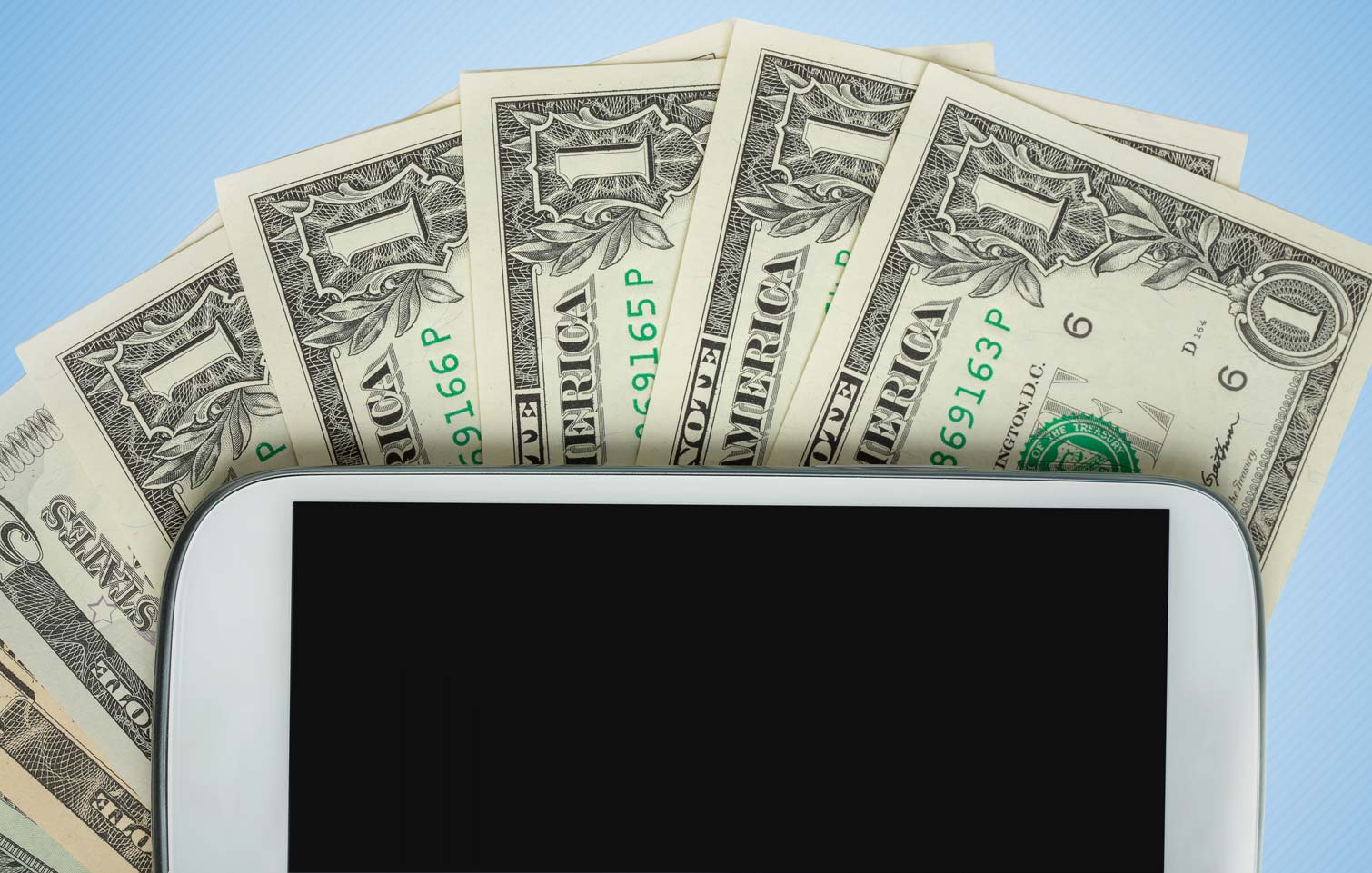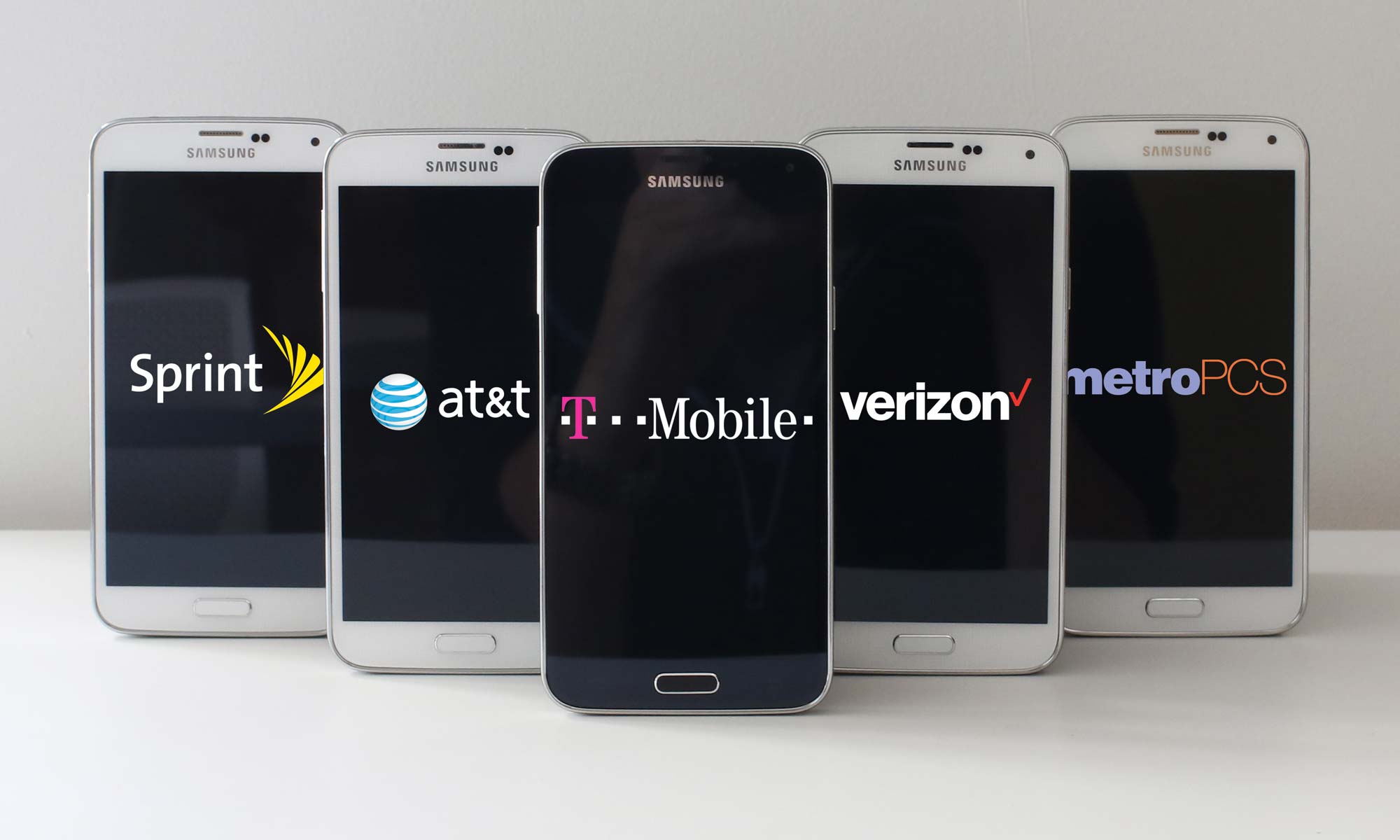5 Sneaky Ways Your Wireless Carrier Is Ripping You Off
Your monthly cellphone bill contains more fees and gotchas than you probably knew. Here's how where your carrier may be taking you for a ride.
Between unexplained fees, roaming charges and other fine print, America's wireless carriers stuff so many hidden gotchas into their packages that you have to wonder whether they're vying to be the next supervillain in an Avengers movie. Most of the time, these dumb extras are unwarranted and make things more confusing. It often doesn't seem fair when your service provider charges you for an upgrade, or because you used your phone abroad instead of domestically.

The good news is, wireless service involves less hair pulling than it used to. Carriers like T-Mobile and Google's Project Fi have introduced customer-friendly features such as no-contract agreements and bonuses for unused data. But that doesn't mean inexplicable charges and infuriating policies have gone away. Here are the five worst ways your carrier could be ripping you off.
Monthly Access Fees
A relic of the two-year-plan era, carriers initially imposed monthly access fees as a way to offset the cost of providing a subsidized handset to customers who signed up. These days, all major carriers offer devices at full value or broken up into monthly payments. With a handful of exceptions, carriers don't sell subsidized phones anymore.
So why are AT&T, Verizon and Sprint still charging you between $15 and $45 a month in addition to what you pay for data? Some people speculate that these fees might cover the cost of unlimited text and minutes now that both come standard on all data plans. There's some truth to that: A Verizon spokesperson previously told Tom's Guide that the access fees are "simply the access to the network, which includes unlimited calling, unlimited texting, free NFL mobile, 25GB of cloud storage and free international text messaging."
T-Mobile got rid of subsidized-phone plans in 2013 and doesn't charge access fees. AT&T, Sprint and Verizon all charge access fees — although Sprint has eliminated the monthly fee for its unlimited plans — with AT&T charging different access fees depending on the size of your data plan. If T-Mobile can do away with these surcharges and still see a growth in subscribers (and, therefore, revenue), it's hard to believe that the other carriers can't. Hopefully, this needless fee goes the way of the two-year-plan soon.
MORE: Best and Worst Wireless Carriers
Upgrade Fees
To secure your phone number, you pay an activation fee when you start a new line on a carrier. But when you upgrade to a new device, some carriers charge you again to get your new phone on the network. For instance, AT&T and Verizon charge $20 to upgrade — the same price as their activation fees. But why should you have to pay again?
We asked Verizon. "The upgrade fee helps cover our increased support costs associated with customers switching their devices," the carrier said. "Customers can pay the charge when they upgrade, bill it to their account or trade in an old device to offset the cost."
Sign up to get the BEST of Tom's Guide direct to your inbox.
Get instant access to breaking news, the hottest reviews, great deals and helpful tips.
But all it takes to switch your device these days is — wait for it — swapping a SIM card. It's so easy that you can pick any kid off the street and hand them a thumbtack or SIM ejector kit (which comes in the box of most phones), and they could do it in 5 minutes or less. It would be more difficult if you had to move from a micro-SIM to a nano-SIM card, or if changing out a card required dismantling your phone. But most devices today have easily accessible SIM card slots.
Antiquated upgrade fees belong in the same place as the phones you're upgrading from: the Island of Misfit Toys.
International Roaming Fees
Being charged extra just so you can use a foreign carrier's network that your own provider has probably inked a deal with is unnecessary, especially since T-Mobile and Google have proven that they don't have to do this. The Uncarrier lets you use your domestic talk, text and data allowances abroad at no extra charge, as long as you're on one its qualifying Simple Choice plans with 3GB of data or more. Google's Project Fi lets you use data internationally at the same $10-per-GB rate as you would domestically while also letting you send unlimited texts globally and make calls abroad at 20 cents per minute.

That's a lot more generous than what other carriers offer. For instance, on AT&T's Passport, you can pay $30 for unlimited texting (with picture and video) and 120MB of cellular data for 30 days. Calls will cost $1 per minute, and your data overages cost 25 cents per MB. You can opt for Passport Silver ($60), which brings your voice rate to 50 cents per minute and your data allowance to 300MB (with a 20 cent/MB overage rate). That's still incredibly expensive, considering you really can't do much with 300MB of data without going over. If you used 1GB over the allowance, you'd get slammed with a $200 (20 cents x 1000MB) roaming overage.
MORE: Who Has the Best Cellphone Plans?
AT&T also has international options for Canada and Mexico, adding unlimited talk and text to those countries if you're on a 15GB-or-higher line domestically.
Verizon offers a TravelPass program that lets you pay $10 a day to use your talk, text and data allowances in more than 65 countries as if you were still in the U.S. Sprint's Open World can be added to your plan at no charge, and gives you free unlimited talk and text when you're traveling in the 20 included destinations (mostly in the Americas).
Sprint also gives you 1GB of high-speed data to use in those countries, but if you go over that limit, you'll be charged at $30 per GB (in KB increments).
Some of these policies are better than the international options carriers used to offer, but one glance at what T-Mobile and Project Fi are doing for travelers makes you realize most carriers could be doing much more here.
Unlimited data that's not really unlimited
Carriers charge buckets of money for unlimited data plans, but those plans come with caveats that your speeds could be throttled after 22GB to 23GB of use, depending on the carrier. While this may affect only a small percentage of subscribers, if you're promised something, you should actually get what you're paying for.
Sure, the throttling is supposed to prevent customers who use excessive data from slowing down the network and therefore marring the experience for other subscribers. But in that case, carriers who still advertise "unlimited" data plans need to be clearer about what they're selling and have clear disclaimers that speeds are throttled after a certain threshold is hit. Calling these plans "unlimited" is just plain sneaky.
AT&T, T-Mobile and Sprint say they'll slow down your speeds after 22GB, 23GB and 23GB, respectively, if there's too much traffic on their networks. Verizon remains the only carrier to not throttle customers who are still on unlimited data, but Big Red has also done away with new unlimited plans altogether. Unlimited plans may be disappearing, but as long as they're available, carriers should give subscribers what they've advertised.
Overages
Instead of just stopping you from using any more 4G LTE data once you reach your monthly limit, some carriers hit you with overage fees for the bandwidth you consume over your cap. For instance, AT&T and Verizon charge $10 per GB and $15 per GB that you use over your allowance, respectively, which can quickly add up if you are streaming movies or downloading large files.
AT&T and Verizon have data-usage alerts to warn you when you're nearing your limit, and Verizon gives you the option to add more data at $15 per GB. Of course, you can change your plan to a higher-bandwidth one at any time.
But T-Mobile and Sprint got rid of overages (the latter did away with overages on its Starter Unlimited Data plan), instead slowing down customers' data speeds to 3G or 2G speeds when they go over their limit. Google's Project Fi even pays you back for data you haven't used, and charges you for gigabytes at the same rate after you go over your cap. T-Mobile lets you keep unused data for up to a year in its Data Stash program, while AT&T allows you to roll over leftover bytes to the next month.
The main reason AT&T and Verizon continue to charge overages is simply because they can. However, the market is clearly moving toward either throttling speeds after a customer's limit has been hit, or charging the same rate per gigabyte regardless of whether you've gone beyond your allowance. Overages are as passé as polyphonic ringtones, and carriers that still charge them should be ashamed.
Cherlynn is Deputy Editor, Reviews at Engadget and also leads the site's Google reporting. She graduated with a Master’s in Journalism from Columbia University before joining Tom's Guide and its sister site LaptopMag as a staff writer, where she covered wearables, cameras, laptops, computers and smartphones, among many other subjects.

